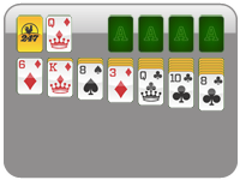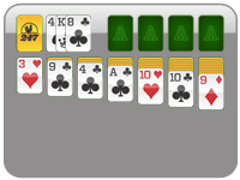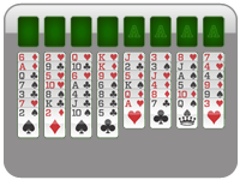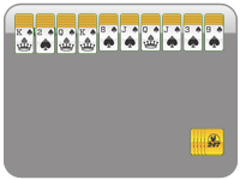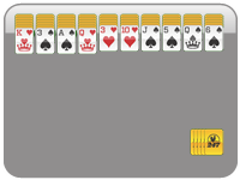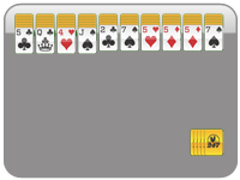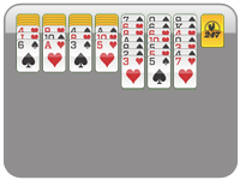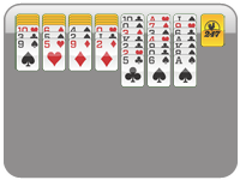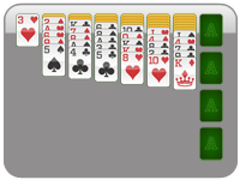Names of Different Types of Solitaire Games Around the World
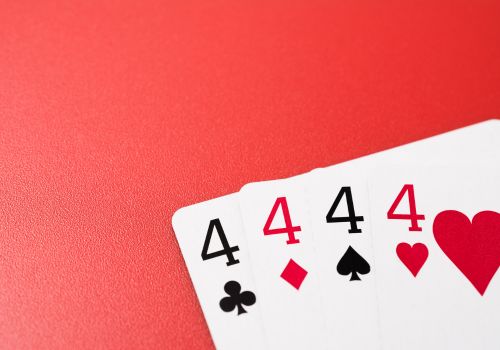
As you can tell by our name, we love all things Solitaire. The more unusual the versions, the better. Unfortunately, this popular game genre has a widely undocumented history. Therefore, we’re continuing our journey of Solitaire discovery by presenting some of the most popular and obscure Solitaire-type games from across the globe. Here are ten different types of Solitaire games from around the world that you should know about.
Exploring 10 different types of Solitaire games online globally
Let’s explore some different variations, rule sets, and the mysterious origins of Solitaire-type patience games from all corners of the world. Plus, we’ll let you know how 247 Solitaire can help you play all these different types of Solitaire games yourself. Let's learn the names of different Solitaire games!
Klondike
Of all the Solitaire variations, Klondike Solitaire is the most-played variation of Solitaire from around the world. It’s what people generally think of when they hear the word “Solitaire". While the name “Klondike" has roots in the Klondike region of Yukon, Canada, the game itself can be traced back to 1700s Europe.
To play, you’ll simply need a single 52-card playing deck. If you’ve read any of our other guides, you’ll be familiar with how this one goes. Construct your 7 tableau columns to start, draw from your stockpile, and swap and arrange your cards until you fill in your foundations to win.
Klondike Solitaire is the perfect game for any Solitaire player, no matter your experience level. It’s easy to pick up and play and offers a fun challenge every match. If you’d like to try out this classic game, you can check it out on 247 Solitaire for free!
Spider Solitaire
Spider Solitaire is a more difficult variation that doubles the stakes of Klondike Solitaire and derives its name from the eight foundations the player must build to win.
To play, you’ll need two standard decks of 52 playing cards (a whopping 104 cards to arrange!). The game is set up with ten tableau columns and eight foundation spaces. Thankfully, Spider Solitaire has fewer stacking requirements than standard Klondike by allowing you to stack like-color cards.
If you’d like to learn more about Spider Solitaire, check out the rules here, or play the game for free right now!
Freecell
Freecell Solitaire is very similar to classic Solitaire variations, with a bit more freedom and flexibility in gameplay. You still stack your foundations with 4 suits and interact with the tableau like the regular game. However, in Freecell, there are no hidden cards, and you can freely store cards in four “free cells" to expedite the process of organizing your tableau.
This variation of Solitaire is popular because of how much easier it is to complete games and practice your skills. Freecell Solitaire as we know it today is a relatively recent creation having been first programmed in 1978 at the University of Illinois.
If you’d like to learn more about Freecell Solitaire, check out the rules, or play for free right now!
Scorpion
Scorpion Solitaire is similar to Klondike but takes a different approach when it comes to the objective of the foundations. There are only three, and each pile has a pre-selected amount of cards within them at the beginning of the game.
To set up a game of Scorpion, you build four tableau columns with seven cards each: three cards face-up, and four cards beneath face-down. The rest of the deck’s cards will be randomly sorted into the foundations, minus three cards to form the stockpile.
Unlike many other variants of Solitaire, Scorpion is always winnable! No battling with random generation or poor luck. If you’re feeling up for the game, you can play Scorpion Solitaire at 247 Solitaire!
Wasp
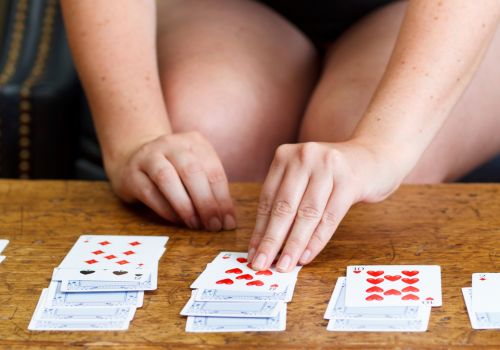
Wasp functions similarly to Scorpion, with a key difference: how empty spaces are handled. The game is built just like Scorpion with four tableau columns with seven cards each: three face-up and four face-down. The rest of the cards are randomly sorted into your foundations, sans three to create the stockpile.
The key difference in Wasp is you can start a new pile with any card. This differs from standard Solitaire rule sets where you must start these piles with a king.
Not a lot of documentation exists on the origins of Scorpion and Wasp Solitaire. Some believe they were additional game modes added by programmers to some of the earliest Solitaire programs. Others believe they may have been familial or local game customs that gained popularity. Sometimes, only history knows. What we do know is that Wasp is playable in all of its glory at 247 Solitaire!
Yukon
Yukon Solitaire is another classic game variation. This variation does away with the stockpile entirely. Instead, you create seven tableau piles with all of the cards available in the deck. Your smallest pile will contain six cards (the bottom-most card facing down and the other five facing up), and you increase the hidden cards in each pile until the final pile has six cards face-down and five cards face-up.
Yukon’s name has a very similar origin to Klondike’s having been named after Canadian wilderness. Interestingly, Yukon is quite similar to another Solitaire variation known as “Russian Solitaire". Whether these games emerged coincidentally at the same time, or if they were influenced by each other in some way, is unknown. You can play Yukon Solitaire at 247 Solitaire for free!
Canfield
Can you beat Canfield? Statistics show: not likely. Canfield, or “Demon" Solitaire, is a brutally difficult variation that rivals Klondike’s random chance. The game is played by dealing thirteen cards face-down into a bonus stack called the reserve, which can be played on top of at any time.
The next card from the deck is played into the first foundation space. This is where things get interesting. Whichever card you place is the official beginning of the entire foundational sequence for all four spaces. So if you played a three, each foundation must be started with a three, and the order of numerical value will loop around after King.
This game’s name originates from Richard Albert Canfield, who popularized the game as a form of recreational gambling in his casinos.
Pyramid
Pyramid Solitaire features one of the most unique game setups in Solitaire’s wide history. The tableau is constructed in the shape of a pyramid. There are 28 cards in total: seven make up the base of the pyramid, and you build up toward a single card at the peak. Any leftover cards become the stockpile.
The objective of the game is to remove every card from the pyramid by combining them with your stockpile cards to equal a value of thirteen. American game creator Albert Hodges first published the Pyramid Solitaire game type we know today in his 1949 book “The Complete Book of Solitaire and Patience Games"
Forty Thieves
Forty Thieves is one of the most historic Solitaire games. It is popularly mythicized as the game Napoleon Bonaparte played in his exile on the remote island of Saint Helena. This is another game that utilizes two full decks of playing cards and plays similarly to Spider Solitaire. The key difference is the unique layout of the initial tableau: ten tableau piles are created with only four cards each, all facing upwards.
Clock Solitaire
This European variation is played using a single 52-card playing deck., and the tableau is built in the shape of a 12-hour clock to create a dial formation of twelve piles with four face-down cards each. You place a 13th column in the very center with only a single card face-up on the top. The goal is to sort cards into their respective clock positions according to their value: five-o-clock, eight-o-clock, etc.
Try playing all the different types of Solitaire games from around the world and find your favorite
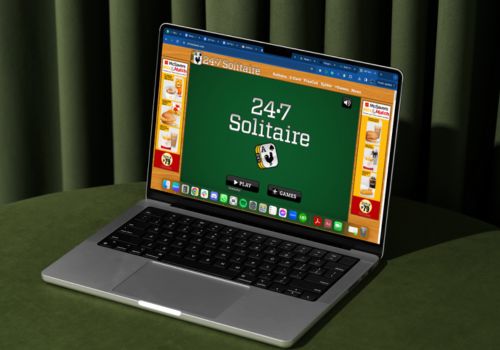
We hope you’ve enjoyed this trip through the historical and geographical world of Solitaire. You can play many of these different types of Solitaire games and more, all for free, at 247Solitaire.com. Happy gaming and bon voyage on your journey of Solitaire from around the world!
Solitaire Games
More Solitaire Games
More Games
Solitaire News
Disclaimer
DISCLAIMER: The games on this website are using PLAY (fake) money. No payouts will be awarded, there are no "winnings", as all games represented by 247 Games LLC are free to play. Play strictly for fun.

